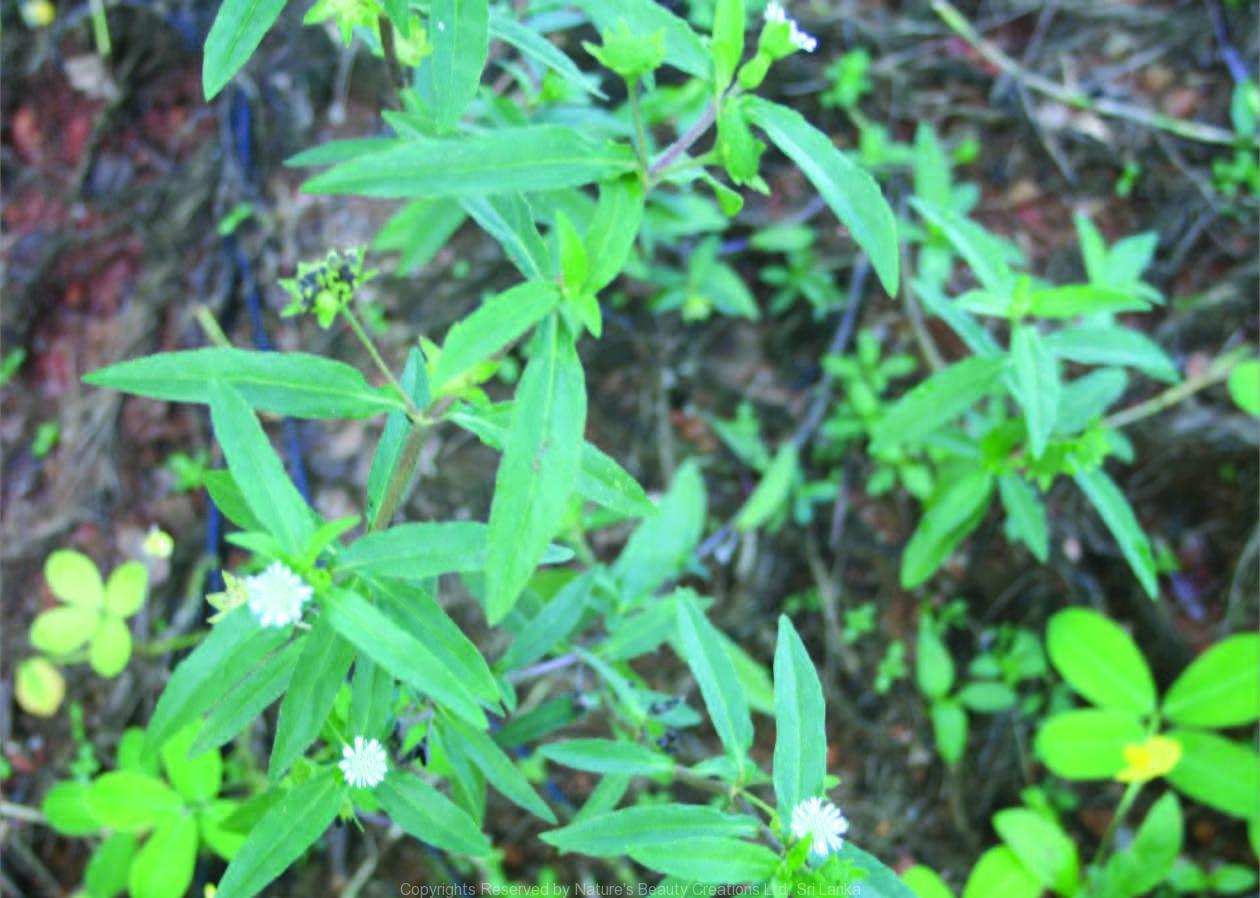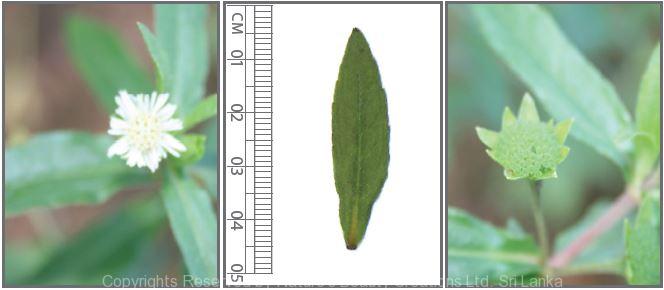

Traditional Knowledge
Useful plant parts :
Whole plant, aerial part, root and leaf
Uses in traditional medicine :
- Whole plant acts as a deobstruent for hepatic and spleenic enlargements
- Juice of fresh leaves is applied as nasal drops for asthma and bronchitis
- Infusion of roots is used for toothache and for strengthening of gums
- Medicated oil prepared with aerial parts is good for the head and eyes
- Leaf porridge is taken long term for jaundice and possess anti ageing properties
Scientific Research
Chemical constituents:
Coumestans: wedelolactone and its derivatives, strychnolactone, thiophene oligomer: α-formylterthienyl, ecliptal, fatty acids: stearic, lacceroic acids, flavonoids: orobol and β-sitoslerol from plant
Bioactivity :
Chloroform and butanol extracts of plant: antigiardial, positive effects on the serum lipid and oxidative metabolism; methanol extract of leaves: anti-inflammatory; whole plant extract: activity against HIV-1 integrase, antimytotoxic and antihemorrhagic against crotalid venoms due to antiproteolytic and antiphospholipase activity, improve acquisition and retention of memory, nootropic, antiulcer, antihyperlipidaemic; ethanol extract of aerial parts: protection against the myotoxic effects of rattle snake venom
Clinical:
References : Arunachalam, G. et al., (2009), Anti-inflammatory activity of methanolic extract of Eclipta prostrata L. (Astearaceae), African Journal of Pharmacy and Pharmacology, 3(3),97-100. Kim, D. et al., (2008), The butanol fraction of Eclipta Prostrata (Linn) effectively reduces serum lipid levels and improves antioxidant activities in CD rats, Nutrition research, 28(8), 550-554. Kumari, C. S. et al., (2006), Lipid lowering activity of Eclipta prostrata in experimental hyperlipidemia, Journal of Ethnopharmacology, 105(3), 332-335. Melo, P. A. et al., (1994), Inhibition of the myotoxic and hemorrhagic activities of crotalid venoms by Eclipta prostrata (Asteraceae), extracts and constituents, Toxicon, 32(5), 595-603. Mors, W. B. et al., (1989), Neutralization of lethal and myotoxic activities of South American rattlesnake venom by extracts and constitu- ents of the plant Eclipta prostrata (Asteraceae), Toxicon, 27(9), 1003-1009. Sawangjaroen, N. et al., (2005), The in vitro anti-giardial activity of extracts from plants that are used for self-medication by AIDS patients in southern Thailand, Parasitology Research, 95(1), 17-21. Tewtrakul, S. et al., (2007), HIV-1 protease and HIV-1 integrase inhibitory substances from Eclipta prostrata, Phytotherapy Research, 21(11), 1092-1095. Thakur, V. D. and Mengi, S. A., (2005), Neuropharmacological profile of Eclipta alba (Linn.) Hassk, Journal of Ethnopharmacology, 102(1), 23-31. Zhang, J. S. and Guo, Q. M., (2001), Studies on the chemical constitu- ents of Eclipta prostrata (L), Yao Xue Xue Bao, 36(1), 34-7.
Copyrights Reserved By
Natures Beauty Creations




